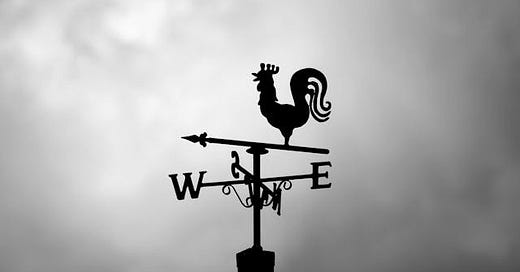Белеет Парус... Второе предложение
Reading the second sentence from the poem Парус by M. Lermontov
This is the second part in the “Белеет Парус…” series of the articles in the Read Russian Substack. Click here to start off the top.
Что ищет он в стране далекой?..
О ком или о чём говорится в предложении?
О нём (о некоем человеке, предмете, и т.д.).
он - подлежащее, (местоимение, мужской род, именительный падеж, ед. число).
Subject: "он" (it) - Pronoun (masculine, nominative case, singular).
In English, the pronoun "it" is typically used to refer to non-human objects, animals (when the gender is unknown or irrelevant), and abstract concepts. However, in Russian, the pronouns "он" (he) and "она" (she) are used not just for people, but also for inanimate objects and animals, based on the grammatical gender of the noun they refer to. Russian does not have a direct equivalent of the English pronoun "it".
Read more on that topic.
Example:
Он подошёл к окну.
Она смотрела на него.
Он что делает? Он ищет.
ищет - сказуемое, (глагол, 3-е лицо, ед. число, наст. время, изъявительное наклонение).
Predicate: "ищет" (searches, seeks) - Verb (3rd person singular, present tense, indicative mood). But it could also be: is searching or is seeking since Russian language does not distinguish between present and present continuous tenses in the verbs.
Example:
Он ищет свой дом.
Она ищет ответы на свои вопросы.
что - дополнение, (вопросительное местоимение, средний род, винительный падеж, ед. число).
Object: "что" (what) - Interrogative pronoun (neuter, accusative case, singular).
Example:
Что ты видишь? (What do you see?)
Что он сказал? (What did he say?)
Он ищет где? В стране.
в стране - обстоятельство (предлог + существительное, предложный падеж).
Adverbial Modifier: "в стране" (in the country) - Preposition + Noun (prepositional case).
Example:
Мы живём в стране чудес.
Она путешествует в другой стране.
В стране какой? В стране далёкой.
далёкой - определение (прилагательное, женский род, предложный падеж, ед. число, согласуется с существительным страна, страной).
Attribute/Modifier: "далёкой" (distant) - Adjective (feminine, prepositional case, singular, agrees with "стране").
Example:
Мы мечтаем о далёкой стране.
Они говорят о далёкой планете.
Photo by Mat Brown
Summary:
The sentence "Что ищет он в стране далёкой?" translates to "What is it searching for in the distant country?" It talks about an object ("он") that is searching for something in a faraway land.
V. Nabokov translated this line as:
”What do you seek in a far country?”
Structure:
что (what) - Interrogative pronoun
он (he) - Subject
ищет (is searching) - Predicate
в стране (in the country) - Adverbial Modifier (prepositional case)
далёкой (distant) - Attribute/Modifier (adjective, agrees with "стране")





Why does it read ЧТО, but sounds ШТО?